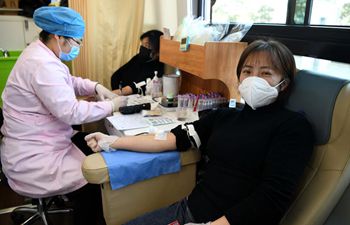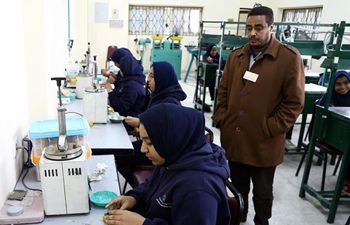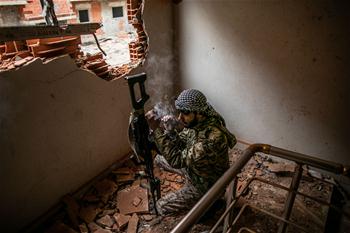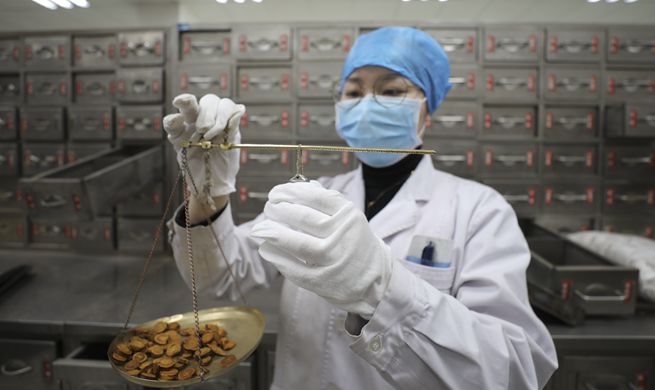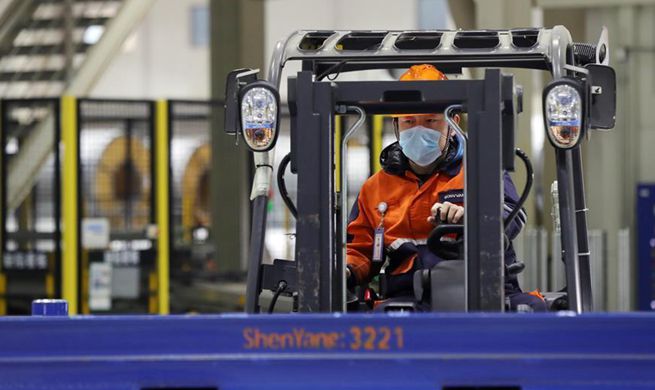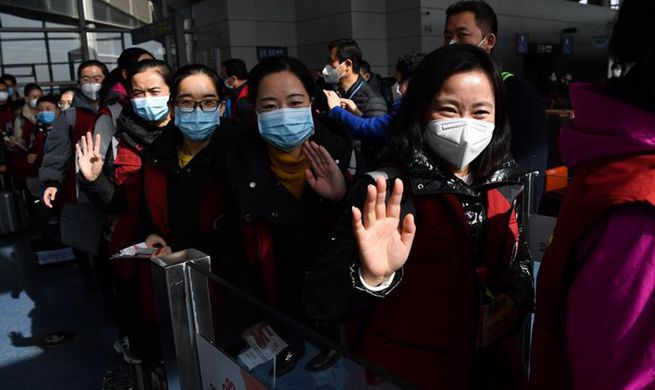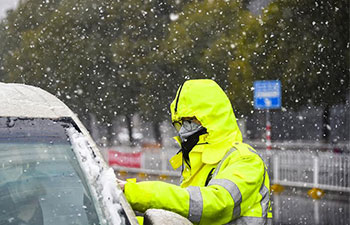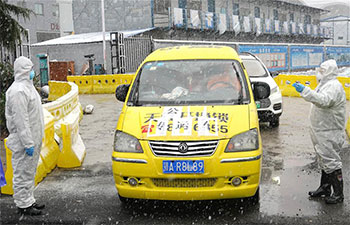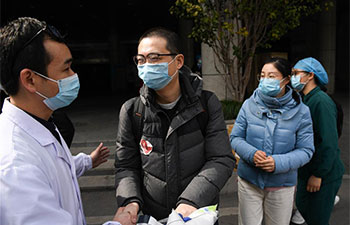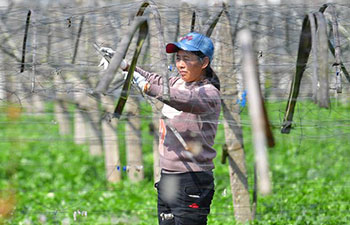UNITED NATIONS, Feb. 18 (Xinhua) -- The UN envoy to Yemen Martin Griffiths on Tuesday told the Security Council that violence is escalating in the country, while noting that peace efforts are at risk of collapsing.
"The hard work the parties have done is at grave risk of being undone," Griffiths said, while noting that fighting between the Houthi rebels and forces loyal to the government erupted on Jan. 19 after months of relative calm since the signing of an agreement in December 2018 which was meant to pave the way for wider peace talks aimed at ending the war.
"The situation in that country has grown increasingly dire during the past month, with both sides announcing expansive military goals and exchanging fierce rhetoric," Griffiths briefed the Council by video-teleconference from Geneva.
"Most of the heavy fighting has taken place in Nihm District, as well as in Al-Jawf, Marib and Saada governorates, with previously quiet front lines being drawn into the escalation," he added.
"Despite reassurances that the parties believe in a peaceful political solution, their current actions are in direct contradiction of this," he noted, expressing concern that the escalation may threaten the vulnerable situation in Hodeidah.
He expressed fears that, while the United Nations Mission to Support the Hodeidah Agreement (UNMHA) strives to maintain cooperation between the parties, the escalation may challenge its efforts to maintain calm in that port city.
Despite the dire military situation, however, the parties met in Amman, Jordan, between Feb. 10 and 16 and agreed to exchange prisoners and detainees as a firm commitment to reuniting families with their loved ones, he said.
The first two medical air bridge flights also transported 28 patients from Sana'a for medical assistance abroad, he said, noting that despite that sign of hope, thousands of people needing medical care abroad remain in Sana'a.
Expressing alarm over the lack of progress in addressing the threat posed by the deteriorating condition of the oil tanker Safer, he warned that the vessel's potential rupture could spill more than a million barrels of oil into the Red Sea, causing an environmental and economic catastrophe for Yemen and its neighbors.
He went on to note that all commentary from Yemeni leaders points to a core principle that "peace can only emerge from a political compromise between both parties through a United Nations-led process."
"It will not be dictated from a position of military dominance," he added.
Engagement in the UN process must be unconditional and cannot be secondary to military gain, especially when there is no military solution, said the envoy.
"But a reduction in violence is not enough," he added, calling on the parties to unite around a vision entailing an inclusive government, a political transition process, a military and security sector that safeguards Yemenis, and acceptance that enmities must end even when differences remain.
"These are achievable goals when the political will is truly there," he noted.
The envoy brokered an agreement between Yemen's government and the Houthi rebels in Sweden which includes a ceasefire, a troop withdrawal in the port city of Hodeidah.
But the recent surge in violence between the two sides has put the careful mediation to build confidence between the two sides at risk.





